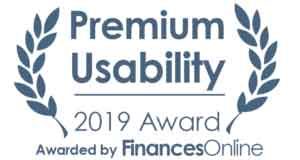TABLE OF CONTENTS

What are Clinical Trials?
According to World Health Organization (WHO)
‘Any research study that prospectively assigns human participants or groups of humans to one or more health-related interventions to evaluate the effects on health outcomes’.
Clinical trials revolve around the following areas of healthcare for diagnostic or screening tests in order to find new ways to detect and treat disease:
- Experimental drugs
- Other biological products
- Vaccines
- Medical devices
- Surgical and other medical treatments and procedures
- Psychotherapeutic and behavioral therapies
- Health service changes
- Preventive care strategies and
- Educational interventions
The need for Clinical Trials
Clinical trials are carried out for the development of new interventions, without which, it is crucial for us understand if a healthcare model is suitable for safe and effective use, or whether a diagnostic test works in alignment with a specific clinical setting. This gives us insight on how new treatments might work and if there are new substitutes for testing available.
Technological Advancements in Healthcare
Along with ML, AI and IoT, blockchain technology have rapidly emerged to become one of the healthcare industry’s most talked-about technologies.
“When considering the US healthcare economy, it is estimated that by 2026, the key clinical health AI applications have the potential to create $150 billion markets in annual savings.”
Blockchain addresses the improper treatments which arise as a result of lack of access to critical health data. It facilitates the development of the patient-owned, centralized longitudinal healthcare.
Technological Advancements in Healthcare
Legacy healthcare model has a bare minimum role for the patient, it is inclined towards providers and stakeholders more. The relationship between healthcare providers and patients is considered to be paternalistic, as it lacks patient centricity. However, we have witnessed a significant shift of authority in recent times with the arrival of IoT and AI in the healthcare marketplace.
Fragmented Health data contained in legacy systems is siloed as it varies in formats and standards altogether making it extremely difficult to share. In short, the legacy healthcare data sharing model is ill-suited to the instantaneous needs of modern-day patients. As a result, stakeholders and healthcare providers in the network are incentivized to maintain their own records, and no single version of the truth exists.
“Blockchain technology is the biggest achievement in cryptography of the past decade. Source Data Verification (SDV), which consumes about 20–30% of the clinical trial budget nowadays, will become redundant when blockchain technology disrupts the pharma industry.”— Author, Cyntegrity
Blockchain-powered Clinical Trials: Democratized Medicine and Empowered Patients
Patients now control their own data and are expected to contribute to decisions related to their preferred treatment choices. With blockchain, clinical communication brings increased access to emergency information, allowing clinicians to intercommunicate. If an unauthorized person tries to update a patient health record, the system will prohibit to alter that record on the blockchain. Only the authorized users can make the update in real-time basis as there is no need for patient data to be manually transferred from system to system.
The blockchain for healthcare system will help in:
- Evaluating and monitoring one or more treatment interventions for a condition along with decentralized approaches to surgery or therapies
- Assessing different ways to prevent a disease or condition, for example, through precision medicines, vaccines, and closely monitored lifestyle changes in the decentralized network
- Evaluating one or more diagnosis interventions by consulting third-party doctors and healthcare experts which is helpful in identifying or diagnosing a particular condition through evidence-based research.
- Examining suggested and recommended identification methods for recognizing a condition across the clinical trial phases that are guided by smart contracts and timestamps.
Current Developments
The Digital Ledger Technology (DLT) is poised to disrupt the stagnant trial timelines, looking at which it can be presumed that the ability of legacy data management platforms will address the competing needs of patient privacy and clinical data integrity.
- In November 2017, students from Imperial College Business School along with the Centre for Cryptocurrency Research and Engineering hosted the first edition of the Hackathon series on ‘Blockchain and Distributed Ledger Technologies (DLTs) in Healthcare and Life Sciences.
- The ONC’s PGHD adoption curve indicated that in 2017 we were in the early adoption stage of blockchain and are most likely to enter a growth phase from 2018 onwards.
Blockchain in healthcare Use Cases for Clinical Settings
GENETIC TESTING
The blockchain model for genetic testing will likewise eliminate personal genomics companies such as middlemen between data owners and data buyers. However, data owners can acquire their personal genomic data from the blockchain platform and join the network in order to directly connect with data buyers. This will also satisfy the needs of data buyers in regards to genomic data availability, data acquisition logistics, along with the resources required for genomic big data.
PRECISION MEDICINE
At present, digital health workflows are functioning without acute data and silos among different hospitals and healthcare departments within a health system. As we witness the healthcare industry struggling to find the trade-off between risk and reward of technological advancements. The potential application of blockchain technology will provide a timely answer to unprecedented levels of data breaches. Blockchain technology here provides an additional layer of trust by inviting health data interoperability, cybersecurity, health data ownership, along with value-based care.
SUPPLY CHAIN MANAGEMENT
Major pharmaceutical companies are very optimistic about leveraging blockchain technology in order to track the drug supply chain for an enhanced customer journey. With blockchain, they are able to create a reliable and tamper-proof audit trail for medicines and equipment as they move through the healthcare ecosystem.
MEDICATION MONITORING
Blockchain technology offers an innovative way to ensure that keeping a vigil on abuse-prone medications are better controlled. The prescription can be tracked and monitored in the network which will likewise be helpful in medico-legal cases, tracking patients’ medical history and medical malpractices.
PUBLIC HEALTH SURVEILLANCE
Migrating the healthcare data securely from one peer to another in a complaint yet a transparent manner is possible with blockchain technology. Blockchain in healthcare use cases plays a major role in managing population health management situations by reducing the barriers involved in complex data sharing agreements between physicians, hospitals, healthcare providers and different government departments.
Other areas where blockchain for healthcare has a great potential are:
- Clinical Data Exchange and Interoperability
- Claims Adjudication
- Billing Management
- Pharma Supply Chain Integrity and Provenance
- Pharma Clinical Trials
- Cyber Security and Healthcare IoT
- Robot-Assisted Surgeries
- Monitoring Virtual Nursing
- Dosage Error Reduction
- Interconnection of Machines
- Cybersecurity
- Preliminary Diagnosis
EndNote
Healthcare users expect the instantaneous flow of data where they can trust the service provider when it comes to data transparency and security. Many industries like finance, real estate, and e-commerce have adopted the much-needed technological change to guarantee secured flow of information. However, the healthcare industry has lagged behind. So far, we have witnessed the healthcare industry as a lucrative target for hackers.
The blockchain technology will facilitate the clinical trials by interconnecting different systems that are not readily communicating with each other and rather create data provenance that satisfies regulatory and clinical requirements. As the blockchain technology adoption grow, it will increasingly provide a foundation that enables Artificial Intelligence and Machine Learning to fully realize their importance to healthcare.
The blockchain will likewise improve the quality of patient care whilst bringing major reductions in the healthcare cost. In a nutshell, it almost took us a decade to offer low-cost care delivery options to the patients rather than the traditional high-cost ones. Blockchain technology took the center stage where care coordination became the mantra for successful healthcare institutions.






 Rising Star Award
Rising Star Award
 Premium Usability Award
Premium Usability Award


